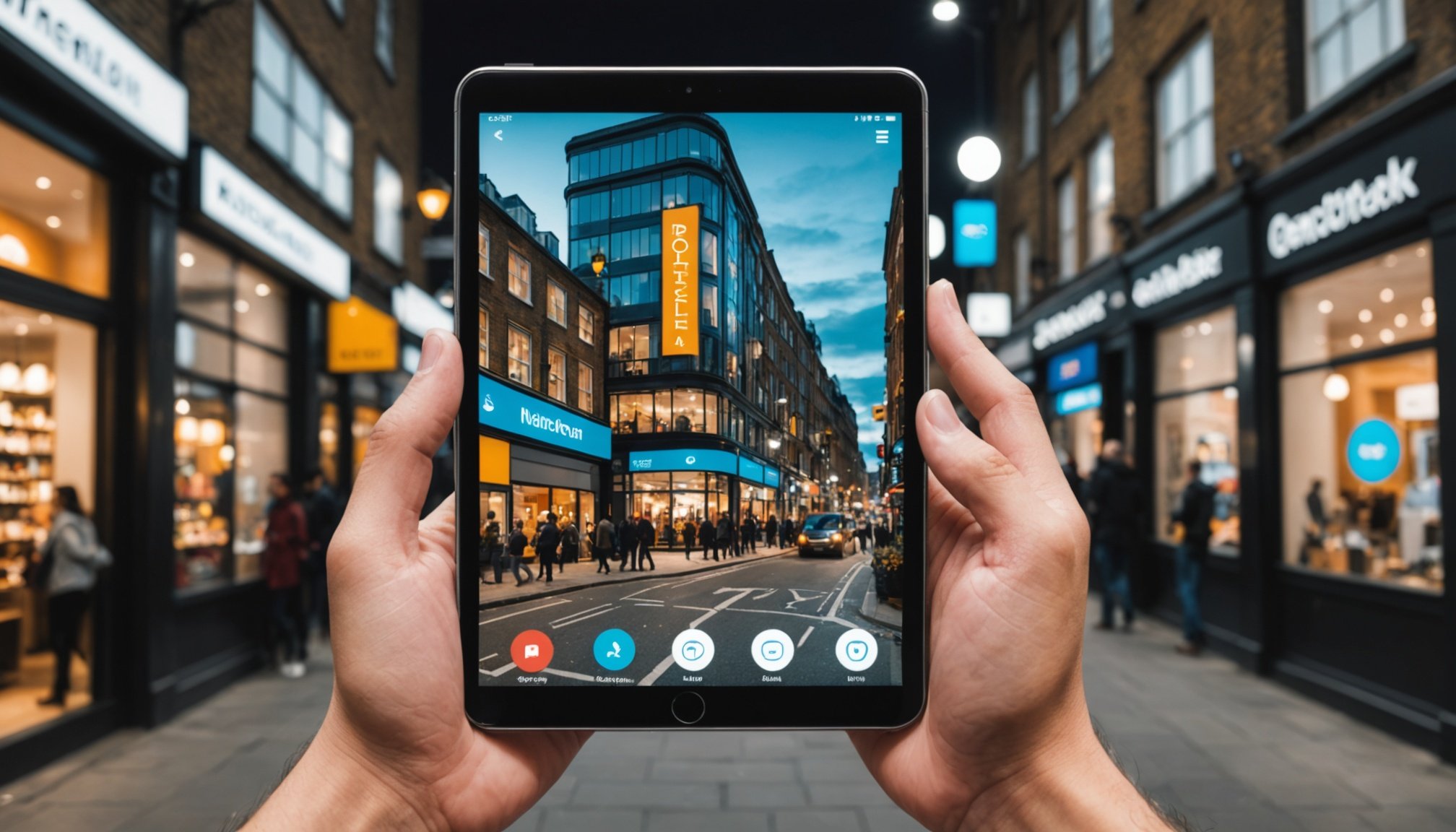Leveraging Augmented Reality for Enhanced Marketing in UK Companies
Augmented reality marketing benefits UK businesses by offering immersive, interactive experiences that deeply engage consumers. AR in UK business has transformed traditional marketing strategies with AR, allowing companies to showcase products dynamically, leading to higher conversion rates and brand loyalty. For example, retailers can enable customers to visualize products in their own homes before purchase, bridging the gap between online and offline shopping.
Emerging trends reveal that AR is increasingly integrated into social media campaigns, enhancing user interaction and feedback. Consumer engagement through AR improves recall and emotional connection, making campaigns memorable. UK marketers are rapidly adopting AR to differentiate their brands in a competitive market, leveraging technology to create personalized experiences.
In the same genre : How can UK marketers use predictive analytics to improve campaign performance?
Marketing strategies with AR in UK companies focus on blending digital and physical elements, tapping into real-time data for tailored promotions. The practical advantages include increased customer interaction time, improved data collection, and cost-effective storytelling. As more UK companies recognize these benefits, AR adoption continues to accelerate, positioning augmented reality marketing as a cornerstone of innovative marketing strategies.
Successful Case Studies of UK Businesses Using AR
Several British companies augmented reality to revolutionize their marketing strategies, showcasing the potential of AR. For instance, retail giants have integrated AR into apps, allowing customers to visualize products in their homes before purchase. This approach boosts engagement and reduces return rates, reflecting practical benefits in real-world scenarios.
Also read : How Can Marketers Leverage UK Computing Trends to Stay Ahead?
In the entertainment sector, UK AR marketing case studies reveal immersive campaigns that blend physical and digital experiences. Festivals and museums use AR to enrich visitor interactions, deeply connecting audiences with content through storytelling and interactive displays. These AR examples in UK contexts demonstrate AR’s versatility beyond traditional advertising.
One notable campaign employed AR to allow users to customize vehicles virtually, leading to increased inquiries and sales. The campaign’s objective was to enhance customer experience by providing a hands-on feel digitally. The success of such initiatives emphasizes that carefully designed AR applications can meet tangible business goals, creating both excitement and measurable ROI.
From these cases, companies learned the importance of seamless integration and user-centric design. Innovating with AR not only grabs attention but also builds lasting brand relationships by offering unique, valuable experiences.
Actionable Steps to Integrate AR into UK Marketing Campaigns
Effectively integrating AR in UK marketing begins with clearly identifying marketing goals that align with augmented reality’s unique capabilities. Marketers should ask how AR can enhance customer engagement, boost product interaction, or increase brand awareness within the UK market.
Next, selecting the right AR tools and platforms tailored to UK business needs is essential. Options range from mobile application frameworks to web-based AR, depending on target audiences and campaign complexity. Considering platforms popular with UK consumers ensures your AR campaign implementation in the UK gains maximum reach.
Planning the campaign involves defining the user journey, designing interactive content, and coordinating technical development. Follow these practical steps for augmented reality marketing success:
- Establish measurable objectives consistent with business outcomes.
- Choose user-friendly AR tools that support your goals and budget.
- Develop AR content focusing on immersion and ease of use.
- Pilot test with a UK audience segment to gather feedback.
- Launch the AR campaign with continuous performance monitoring to optimize results.
By following these practical steps for integrating AR in UK marketing, businesses can deliver impactful, engaging experiences that resonate with consumers.
Tools, Platforms, and Resources for AR Marketing in the UK
Understanding the AR marketing tools UK offers is essential for businesses aiming to leverage augmented reality in their campaigns. Prominent augmented reality platforms include Zappar and 8th Wall, both compatible with UK digital marketing regulations. These platforms provide versatile features—from simple AR overlays to complex interactive experiences—tailored to varied marketing objectives.
Professional agencies specializing in AR marketing UK can assist in integrating these augmented reality platforms seamlessly, offering creative input and technical support. Their expertise is invaluable for navigating the evolving digital marketing resources landscape.
Cost considerations vary significantly. Many platforms offer scalable pricing models, starting with affordable entry points for small to medium businesses, expanding to more extensive, customizable solutions as campaign complexity grows. This scalability provides flexibility, ensuring AR marketing tools UK can adapt to diverse budgets and business sizes.
For companies seeking hands-on experience, trial versions or demo accounts available on many platforms enable experimentation before commitment. Encouraging businesses to explore these tools can demystify augmented reality’s potential and foster innovative marketing strategies within the UK context.
Addressing Challenges and Considerations for UK Marketers
Navigating AR marketing challenges in the UK requires careful attention to data protection regulations, notably the UK GDPR. UK-specific augmented reality considerations demand that marketers ensure user consent is clear, especially when collecting location or biometric data. Failure to comply can lead to significant penalties and loss of consumer trust.
Technical barriers also impact user accessibility. Diverse smartphone capabilities and inconsistent internet speeds across regions pose challenges for seamless AR experiences. Optimising AR content for various devices and networks helps address these issues, making campaigns more inclusive.
Marketers can mitigate risks by implementing transparent data handling policies and employing robust security measures. Collaborating with legal experts versed in UK regulations safeguards compliance. Additionally, piloting campaigns with targeted user groups enables feedback on usability and engagement, increasing the likelihood of success.
By addressing these obstacles with strategic solutions, UK marketers can harness AR’s potential effectively while protecting consumers and respecting regulatory frameworks, ensuring impactful, responsible AR marketing campaigns.
Measuring Outcomes and ROI of AR-Driven Marketing
Understanding AR marketing ROI UK is essential for brands seeking to justify investments and optimize future campaigns. The core of AR campaign measurement lies in clearly defined key performance indicators (KPIs) such as engagement rates, conversion rates, dwell time, and customer sentiment. These metrics help quantify AR effectiveness in UK marketing by revealing how users interact with the augmented reality experience.
Several sophisticated tools are available for tracking AR campaign outcomes. These include analytics platforms that monitor user interactions with AR content in real time, heatmaps reflecting engagement patterns, and attribution models linking AR exposure to sales or lead generation. Combining these methods provides a comprehensive evaluation of campaign success.
Real-world data from UK brands demonstrate promising ROI figures. Studies indicate AR campaigns often lead to increased brand recall and higher conversion rates compared to traditional marketing efforts. For instance, some UK retailers experienced up to a 30% uplift in sales following AR-driven promotions, highlighting the tangible benefits of immersive marketing. By rigorously measuring these outcomes, marketers can make data-informed decisions to enhance their AR strategies.






